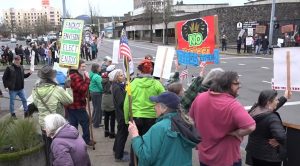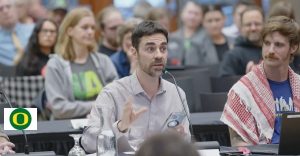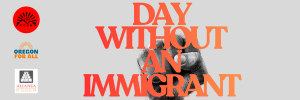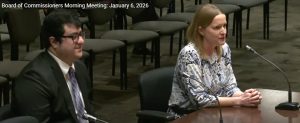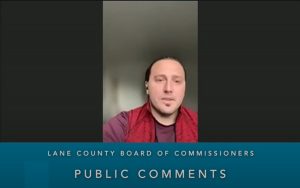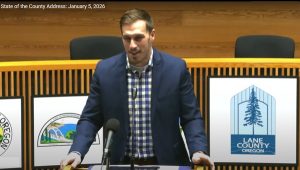Time is money: Join a time bank
6 min read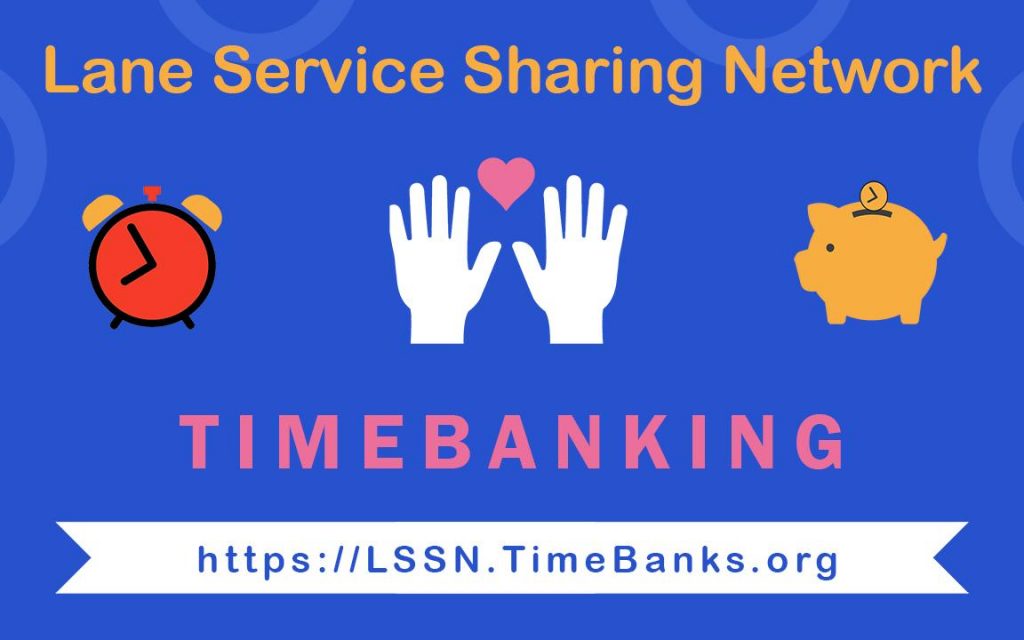
Charles Eisenstein: "The paradise of financial freedom is a mirage, receding as we approach it, and the chase itself enslaves. The anxiety is always there, the scarcity always just one disaster away.”
by Maxime Zahra
“What is a Time Bank?” you want to know. A Time Bank is a bank that manages units of currency, which are based on hours of labor, instead of dollars. The Time Bank in Eugene values everyone’s hourly contribution equally. It’s something of a radical idea within our capitalist economy, to equalize everyone’s contribution, whether we are offering janitorial service, legal advice, repurposing clothing, or chopping wood. And yet, the time bank has been a feature of American history since the early 1800’s with The Cincinnati Time Store.
“So how does it work?” you wonder. Imagine that your friend asks you to help them change the oil in their car. They buy the oil filter and the motor oil, and you give them your time and expertise. You might do this job for them, or you might do it with them, teaching them how to do it, as you go along. It’s less expensive than going to get an oil change, but it’s also more fun, with the added benefit of the teaching you are giving and they are receiving.
If you ran this exchange through the Time Bank, the bank would store the two hours you gifted your friend in your account in Time Bank credits. You could then use those credits to receive something you need from someone else. Let’s say you need a haircut but don’t know a good stylist. You could find one in the time bank.
You could say that time banking is a way for people who are short on cash to engage in the market economy, without having to spend their hard earned dollars, and you’d be right. You could say that a time bank enables a person with low or no income to participate in the marketplace, on their own terms, and you’d also be right. But there’s more to the Lane Service Sharing Network than being able to shop without money.
Amanda Krishbaum, the founder of LSSN, was wondering what it would take to create a truly progressive society. A member of Cooperation Eugene, a New Economy Working Group, she had studied several models of sharing economies, and found that many failed to gain traction due to similar flaws.
Thank you for supporting
local civic journalism
One project akin to a free Craigslist board, ignored the potential for developing connections among members. It was essentially a commodities exchange between strangers, who had no shared agreements, communication, or trust. Exchanges of misrepresented goods that don’t match needs, are a waste of everyone’s time. And as Amanda says, time poverty is often a bigger issue for people in our economy than financial poverty.
Another sharing economy she investigated seemed to draw career activists, a population of givers. The central organizers never used the service to request support, products or services for themselves. This resulted in imbalance and eventual burn out.
In yet another experiment, the users made safe exchanges that weren’t particularly significant. Without much meaning, initial excitement waned.
Amanda is a keen observer of human nature. She notes that as our time is valuable, for us to create a society and culture that works better for us, it will require an effort to change our current purchasing habits. There has to be a compelling reason. We have so much competing for our attention, almost everyone is in overwhelm as it is. Working 40 hours or more in jobs where we often don’t have fulfilling connections, then coming home too tired to interact… In other words, the service or exchange has to be meaningful and significant, as well as to save us time.
After reading Sacred Economics by Charles Eisenstein, Krishbaum became intrigued with the concept of the time bank, with its inherent balance and interconnectivity. The concept was brought to Cooperation Eugene, along with several other tools for economic change. The group gathered community together, presented a variety of methods being used around the country, and took a vote to gauge interest. A resounding majority expressed the desire to develop a local time bank, and Amanda took the lead.
I provided bodywork and became a “Participant Helper” for LSSN, helping to onboard new members through group orientation at Amanda’s home. I requested and received a bike seat to replace the one that was stolen off my bicycle, and received consulting for a problem with the propane in my tiny home. In both situations, what I learned from the exchanges exceeded my expectations.
Kent, who offered to find me a suitable bike seat, rides a foldable bike that he customized to be hybrid electric. It has nifty repurposed fenders he made out of old real estate signs. Did you know you could modify your standard bicycle and make it electric? I didn’t really understand the value of this when I first saw electric bikes in use in San Francisco. I thought they were designed for lazy people. Instead, a hybrid electric bike means you can ride on, up hill as well as down, even when you get tired, enabling you to put more miles on your solar-charged bike, and less on your gas-powered car. Pretty cool, don’t ya think?
Thomas does IT for LSSN, and he used to be a firefighter with the Lane County Fire Department. He responded to my request for help figuring out why my gas was no longer firing up my oven or heater. He educated me about how my gas service was set up, showed me that one valve turns clockwise and the other counterclockwise, and therefore turning one without care can easily unscrew the other, leading to a potential leak. He explained how my valve works, inspected my fire extinguisher and gave me some tips on it’s use and proper placement, and helped me identify and resolve the specific problem I was having.
I’ve also received a music lesson from Juliet, a massage therapist, singer and musician I much admire. She listened to me plunk my ukulele and gave me ideas to improve my strumming, and a whole lot of encouragement. It was a great value to have her attention on my beginner skills, and to hear that I was actually coming along better than I thought.
For a person who doesn’t have the income to purchase a new bike seat, hire a plumber, or pay for music lessons, these exchanges were beyond gold. But on top of that, they helped me move from a state of overwhelm and despair to feeling connected and supported. There are a few more people in this town now who I know and trust, and whose services I can recommend. The peace of mind that comes from feeling known, and knowing others one can call for help is unquantifiable. This is a value we rarely get from financial exchanges.
Word is getting out, but Amanda has been holding the reins some, training “Participant Helpers” who partner with new members as they get oriented and move through making their first offers, requests and exchanges. So much is about the connections that are being made.
It’s been fun to run into people I know from other circles. Eugene is really a small town, so it’s like that anyway. But as more and more people become involved, I am learning more about the gifts and talents of the faces I see in town. I feel truly wealthy, as I receive services I need, save time and money, try out some things that I thought weren’t in my budget, and befriend more amazing people. That’s what I call a win-win situation!
Almost one hundred years ago, economist John Maynard Keynes wrote, “For at least another 100 years we must pretend to ourselves and everyone that fair is foul and foul is fair, for foul is useful and fair is not. Avarice and usury and precaution must be our gods for a little longer still.”
With the Lane Service Sharing Network, we can begin to relax in the knowledge that fair is fair.
Maxime is currently working as a Forest Steward and completing a divinity degree.
